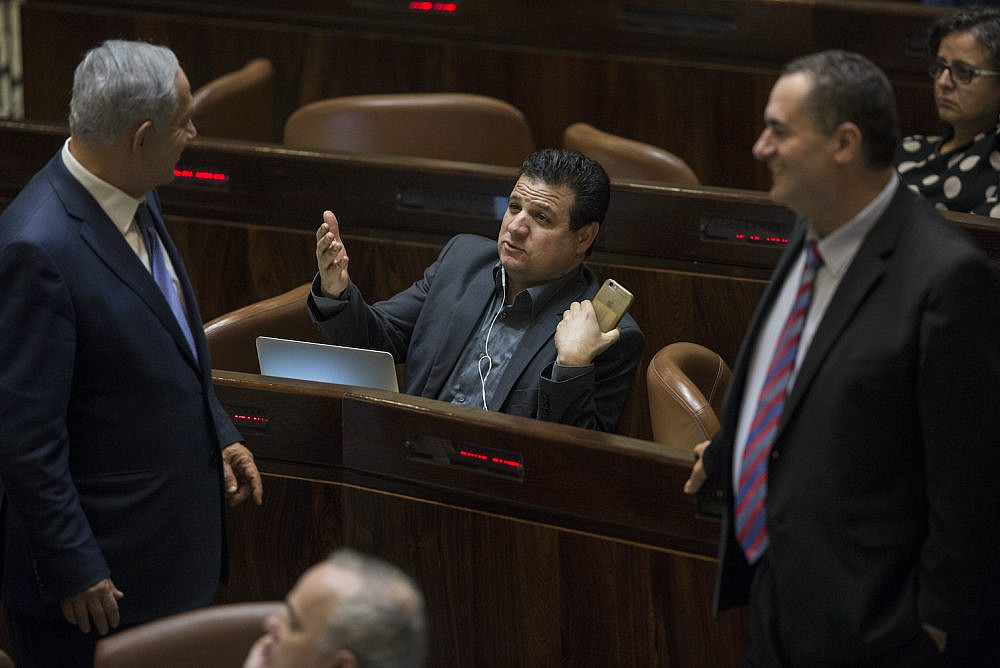Listen here: iTunes/Apple Podcasts | Spotify
Israel is heading into its fourth election in less than two years, and with the COVID-19 pandemic, is facing rather uncharted territory. The failures of the so-called “unity government” to stem the virus over the course of three nationwide lockdowns have left the Israeli public worn out. Meanwhile, Prime Minister Benjamin Netanyahu’s efforts to stave off his corruption trials continue to stoke infighting across the Israeli political scene, including among his coalition allies.
Like previous rounds, these elections are in many ways a referendum on Netanyahu. But there are bigger factors that could determine if the fourth contest will be different from the last.
In this episode of The +972 Podcast, Editor-in-Chief Edo Konrad and Editor Amjad Iraqi sat down to talk about how the elections are pitting different strands of the Israeli right against each other, and the reasons behind the disintegration of the Palestinian-led Joint List.
Facing a splintered political landscape, Netanyahu has reversed his traditional campaign strategy — which relied on racist discourse against Palestinian citizens and fierce attacks on his opponents — by focusing instead on “projecting an image of unity” and touting his success in leading an effective vaccination program.
“Bibi can still count on much of his base to support him, but he also needs to bring in new blocs of support,” said Konrad. Having “taken a hit” from the public anger at his government’s ineptitude, the prime minister is “trying to do everything in his power to secure his next victory, to try to annul [his corruption trials]… to procure votes in any way that he can.”
Konrad added that there was a “huge discrepancy” in the way that the Zionist left, and its flagship policy of the two-state solution, is being debated outside of Israel while being almost completely absent inside Israel. “Not only has Israeli society changed, [but so has] the reality on the ground here between the river and the sea, the establishment and the entrenchment of a one-state, apartheid reality… the Zionist left doesn’t actually offer anything by way of [an alternate] discourse.”
Meanwhile, the Joint List decided to split up earlier this week, after the parties that make up the alliance failed to reconcile their differences. The breakup was driven in great part by the decision of Mansour Abbas, the head of the Islamic Party, to promote a strategy of courting Netanyahu, thus putting it at odds with the List’s other factions, led by Ayman Odeh, that wish to pursue a center-left coalition.
Despite their clear differences, Iraqi notes that the two approaches share the assumption that the List can still “make some gains out of the Israeli political system.” But in the past year, both strategies have resulted either in attacks or dismissals by Jewish parties, all of which have moved further rightward. “As long as Palestinian citizens, or at least their leaders, keep insisting that the Knesset is the way to go forward in their political struggle, you’re not going to see any real advancement,” Iraqi added.
Taking advantage of the Joint List’s split, Netanyahu has been actively campaigning in Arab cities and towns to garner votes for the Likud. Iraqi emphasizes, though, that this about-face has more to do with crippling Palestinian voting power than mobilizing it.
“Bibi has understood that his old approach of inciting and attacking Palestinian citizens has really backfired,” Iraqi explains, because it galvanized Arab voters and boosted support for the Joint List. By inverting his strategy, Netanyahu is now hoping to “reduce the chance of the Joint List being potential spoilers in any coalition bargaining… He doesn’t want even a small chance that the List could be potential game changers.”
Subscribe here: iTunes/Apple Podcasts | Spotify



